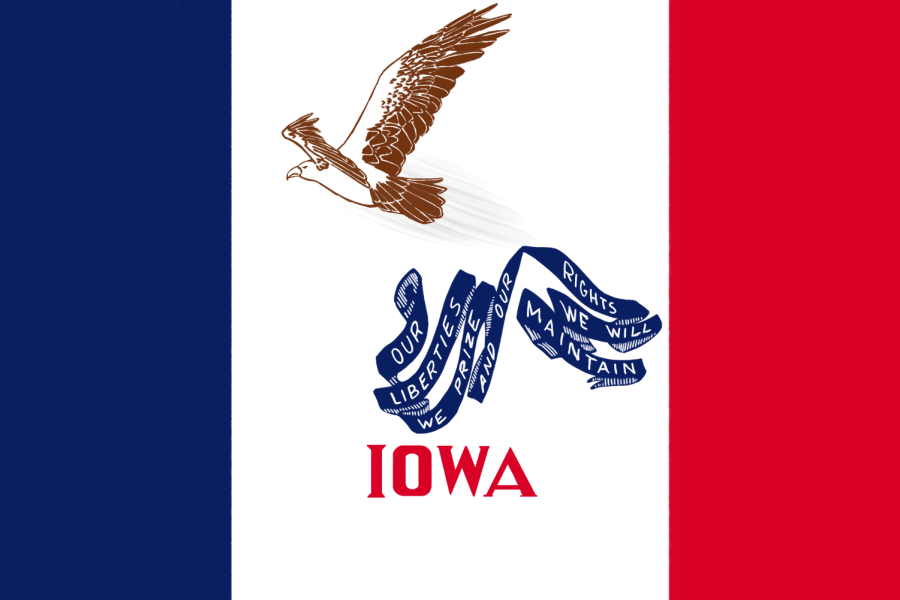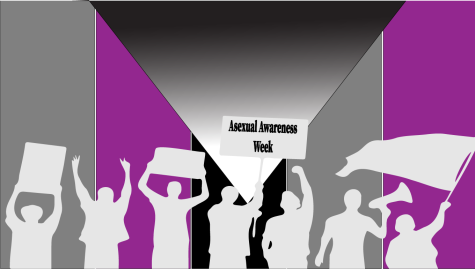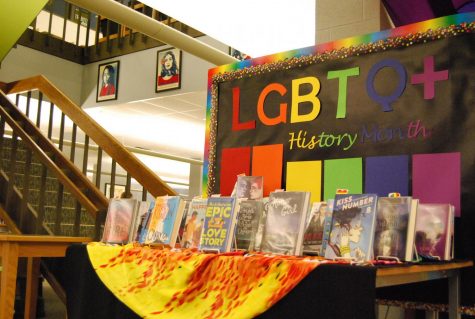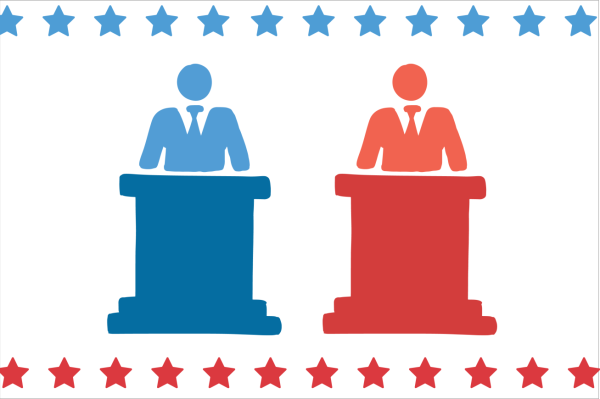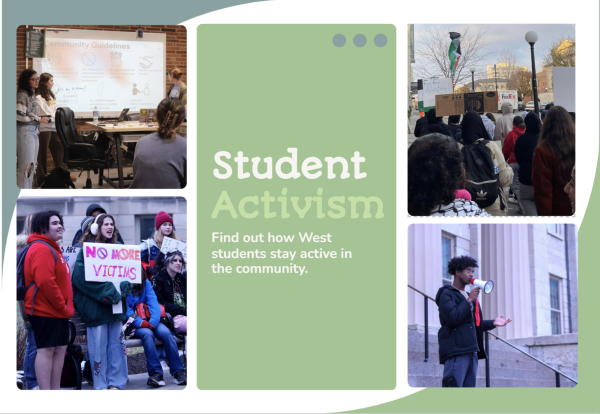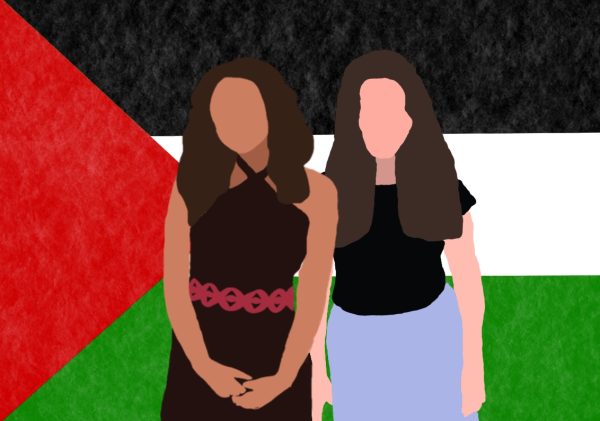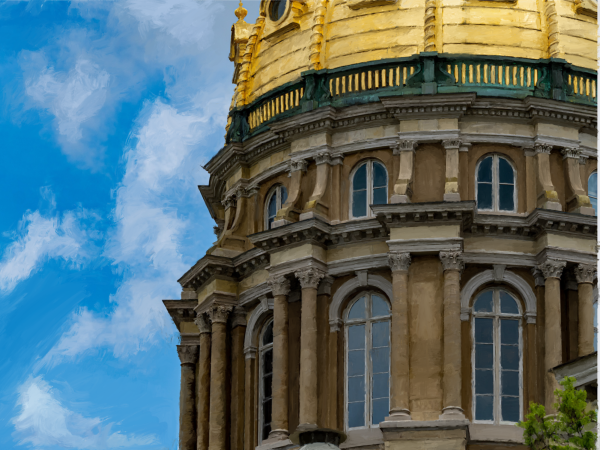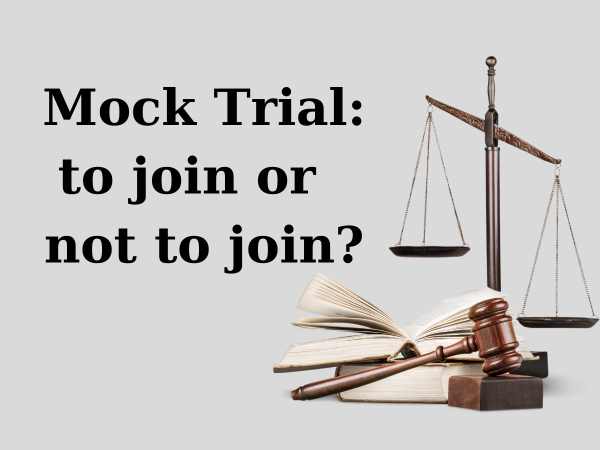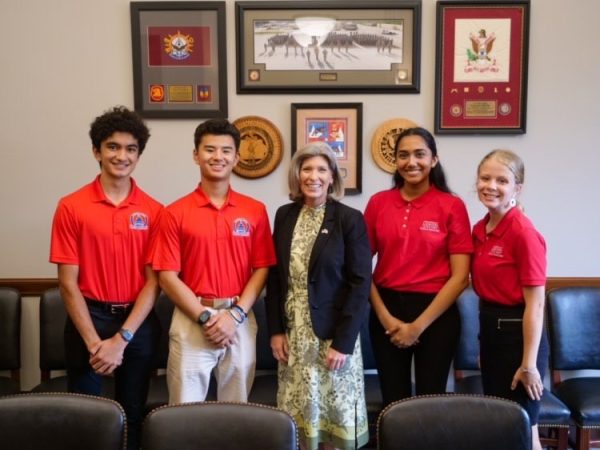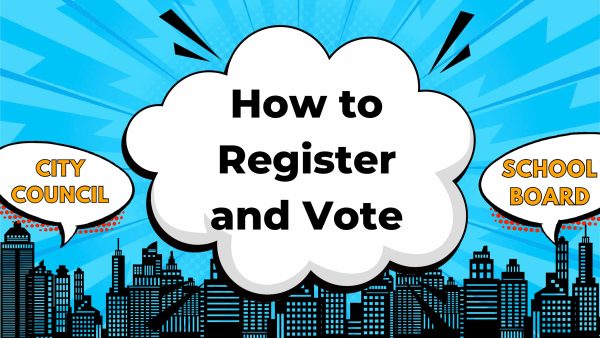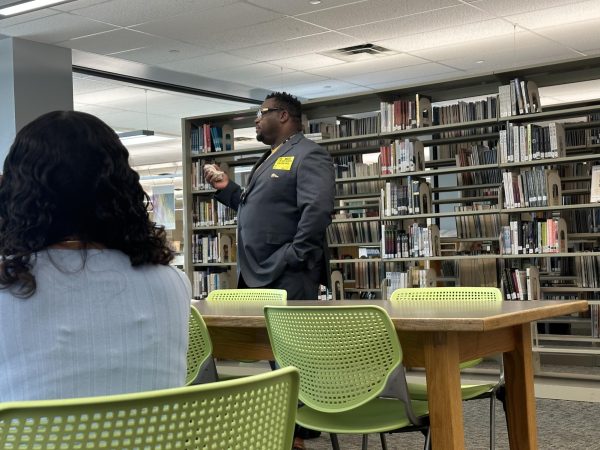Queer fear: now you hear us
In a day and age where the internet is wielded as an outlet of never-ending information, a gray area develops that is both preaching acceptance and spewing hatred for those part of the LGBTQ+ community.
Iowa legislature puts restrictions on LGBTQ+ youth, but teens persevere through social media use as they discover who they are.
The term “gay pride”, coined for the first time by Thom Higgins, a gay rights activist in Minnesota in 1969, encapsulates the promotion of self-acceptance and opposition to the historical social stigma shaming the LGBTQ+ community for who they love. In modern-day, “gay pride” represents both history and the present — dozens of years of struggling to be seen and heard and the success of the movement thus far. Older generations and younger generations of the LGBTQ+ community and allies coming together to change the future. Some of this change, with the rapid evolution of electronics, takes place entirely online.
With the popularization of social media being used as an outlet for information, an online community of mostly Generation Z users has been built up over the years, expanding massively during the COVID-19 lockdown. As everyone transitioned to online schooling and were met with an overwhelming amount of free time, TikTok’s user growth shot up, and with it came teens connecting over gender and sexuality.
Social media actually played a huge role in my ability to understand who I was.
— Evander Emmerson '23
Of course, social media isn’t the only thing propelling the message of acceptance in younger generations. Access to the internet opens up a world of possibilities with the ability to type in simply “gay” and get billions of results ranging from a TikTok video with a #gay in the caption to a historical paper talking about gay marriage being legalized. Online news programs report regularly on events like pride marches, celebrities and politicians who have recently come out and leaders of the movement actively working to protect Queer lives all the time. But these news reports are not always good, with dozens of reports of crime targeting Queer establishments. Most recently, the Colorado Springs mass shooting of the adult gay and lesbian nightclub, Club Q, has dominated news outlets.
Leaving five dead and seventeen injured, the mass shooting done by twenty-two-year-old Anderson Aldrich on Nov. 18, 2022, left many reeling with shock. Social media apps such as Twitter exploded as people mourned the losses, argued whether or not the shooter was anti-LGBTQ+ or not and a new wave of fear took over much of the Queer community. What many quickly realized was that this shooting would not only leave a mark on Queer folk but also inspire many other anti-LGBTQ+ groups to take action.
When discussing the shooting with Evander Emmerson ’23, a student from a rural town outside of Des Moines, Iowa, he talked about how violence and prejudice toward transgender people prevented him from coming out on a large scale. “It makes me feel afraid. If I were to come out officially I definitely would not feel very safe of my surroundings because I know there are going to be people who aren’t going to like me because of that and I’d be afraid for my safety, mostly, because there are people who are going to kill trans people,” he said.
“I’ve come out a lot to a lot of my friends, so they know I’m trans [and] they knew I was bisexual before. There’s not a lot of acceptance at my school…they would talk shit about you and treat you like a freak.” When asked to elaborate, he followed up with, “I don’t want to be called slurs, obviously.”
Emmerson goes on to talk more about how social media affected how he viewed his sexuality. “Social media actually played a huge role in my ability to understand who I was. The internet made it a lot easier to test the waters a little bit, I could experiment with my name and pronouns and I wouldn’t get a lot of hate for it.” The first time he came out, he said, was online.
“As much as there is acceptance online there is a lot of hate because people hide behind screens and say just the most terrible things without consequence.”
— Evander Emmerson '23
Emma McPearce ’23 offers a slightly different take on social media relating to growing up Queer. “On social media everything has to be certain. It’s not fluid, sexuality on social media is not fluid whatsoever. Once something is out there you have to be that.” They discussed how growing up with Queer moms helped them almost more than social media did. “I didn’t have to live Queer experiences on my phone. I could live them publicly and explore my identity publicly and I had models around me publicly.” While a helpful source of information and general anonymity that’s a safe space for people like Emmerson, McPearce goes on to point out the downfalls of social media, referring to it as a “double-edged sword”.
“You either have to come out and give yourself perhaps an identity you don’t prescribe to or you’re queerbaiting which is a strange dichotomy that only exists online.” They said in response to talking about actor Kit Connor, known best for his role in the Netflix show Heartstopper, who was forced to come out on Twitter following accusations of queerbaiting and hate from fans that believed since he played a bisexual character, he should be openly part of the LGBTQ+ community like many of the other cast members. “We get so caught up in labels and definitions we don’t allow for room for growth or fluidity,” they added.
Emmerson agreed with this sentiment. “As much as there is acceptance online there is a lot of hate because people hide behind screens and say just the most terrible things without consequence,” he said.
Moving away from social media and more toward real-life experiences, Emmerson and McPearce offered two varying perspectives of being LGBTQ+ Iowan teenagers.
It feels degrading, almost, that I can’t see people like me represented at school.
— Evander Emmerson '23
Iowa is a historically red state made up of mostly rural prairie and farmland, with only a handful of small cities such as Iowa City and Des Moines. In 1998 when several court cases in other states established that denying the right to same-sex marriage disagreed with the equal protection clause, Iowa legislatures attempted unsuccessfully to pass a stature to bar same-sex marriage. In 2005 the Varnum v. Brien case took place which ended in the court ruling accepting the marriage of two men from Des Moines, and later the state ordered that a married lesbian couple’s names would be put on the death certificate of their stillborn son in the Gartner v. Newton case. These changed Iowa’s previous anti-same-sex marriage beliefs as they formally recognized Queer couples as legally married and parents to a child.
But despite the legalization of same-sex marriage in 2008, a stigma around Queer and transgender people remained. In the past year alone, there have been several laws passed regarding transgender individuals in schools, including the most recent “Don’t Say Gay” bill introduced in the Iowa Senate.
From the Iowa City perspective, being part of a state that passes that kind of legalization is absolutely horrifying.
— Emma McPearce '23
“Our school board has banned a lot of things that have to do with LGBT people. For math problems we can’t have two women being wives. It feels degrading, almost, that I can’t see people like me represented at school.” Emmerson said. “I feel like recently there have been a lot of major moves to silence LGBTQ people and trans people specifically.”
McPearce had similar thoughts regarding the anti-trans bills being passed. “Living in Iowa City it’s this extremely blue, liberal bubble. From the Iowa City perspective, being part of a state that passes that kind of legalization is absolutely horrifying… To be honest I wish that since Johnson County is such a liberal, progressive county, I wish it could translate into political systemic change in movements.”
When asked how he felt about the Iowa Legislature representing trans people, Emmerson had several opinions regarding the topic. “I feel like recently there have been a lot of major moves to silence LGBTQ people and trans people specifically.” He said. “I feel like as a trans person my voice would not be heard over someone who is cishet (cicgender heterosexual).”
He expressed frustration with his school community’s bigoted nature. “I’ve seen a lot of hate toward specifically trans people, which makes me feel a little hopeless sometimes,” said Evan. “A lot of people in my community are rich white people who are also cishet and a lot of the people in my school follow the ideals of their parents, who are more bigoted. I hear a lot of negative things about Queer people at school. Last year especially. Almost every day, I heard the F slur said.”
This was something Emma also touched on. They pointed out how transgender acceptance and Queer acceptance were two entirely different issues, and how there was an almost refusal on the community of West High’s part to understand transgender people.
“When I came out with [my pronouns] within a week I was still she/her. I am very feminine presenting and I think there’s no effort on the community’s part to understand it,” Emma said, referring to their identity.
When talking about their mom’s orchard and how they had been looking for people to come to pick the fruit, Emma spoke about the blatant homophobia they had experienced. “This church volunteered but when they found out my parents were gay they withdrew and this happened over and over again.”
With Queer folk gaining both more recognition and embracing their identities proudly, sometimes it’s hard to forget the flip side to that acceptance. The LGBTQ+ community is still fighting for the chance to be heard and given equal treatment to that cisgender, heterosexual people. Everyone deserves to be heard, whether they’re gay, straight, lesbian, bisexual, asexual, transgender– whatever. It’s basic human decency, not an AP class. Be kind.
Your donation will support the student journalists of West High School. Your contribution will allow us to purchase Scholarship Yearbooks, newsroom equipment and cover our annual website hosting costs.

(they/them) Jules is a senior and this is their second year on the West Side Story. They are the entertainment editor for the online publication. After...



